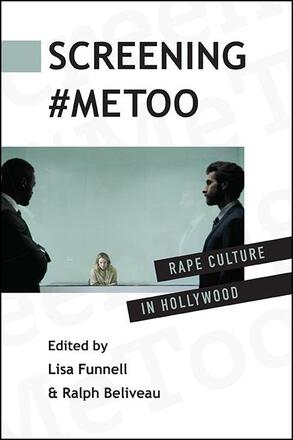
Screening #MeToo
Rape Culture in Hollywood
Alternative formats available from:
Considers how Hollywood films since the 1960s have both reflected and shaped attitudes toward rape and sexual violence.
Description
2023 CHOICE Outstanding Academic Title
Screening #MeToo offers an important and timely discussion of the pervasive nature of rape culture in Hollywood. Essays in the collection examine films released from the 1960s onward, a broad period that coincides with the end of the Motion Picture Production Code in Hollywood, which resulted in more frequent and increasingly graphic images of sex and violence being included in mainstream movies. Focusing on narratives in which surveillance and sexual violence feature prominently, contributors from North America and Europe examine a variety of film genres, including spy films, teen comedies, kitchen sink dramas, coming-of-age stories, rape/revenge films, and horror films. Reflecting the increasing social and academic awareness of sexual violence in Hollywood film and its transmission and cultivation of rape culture in the United States and abroad, they are concerned not only with the content of the films under scrutiny but also with the clear relationship between the stories, how they are being told, and the culture that produced them. Screening #MeToo challenges readers to look at mainstream Hollywood films differently, in light of attitudes about art and power, sexuality and consent, and the pleasures and frustrations of criticizing "entertainment" films from these perspectives.
Lisa Funnell is Associate Professor of Women's and Gender Studies at the University of Oklahoma. She is the coauthor (with Klaus Dodds) of Geographies, Genders and Geopolitics of James Bond. Ralph Beliveau is Associate Professor of Journalism and Mass Communication at the University of Oklahoma. He is the coauthor (with Erika Engstrom) of Gramsci and Media Literacy: Critically Thinking about TV and the Movies.
Reviews
"Screening #MeToo offers readers the benefit of a breadth of history and genre without sacrificing in-depth analysis of specific films … All the essays are well written and will prompt readers to rethink popular films within shifting cultural landscapes and representation." — CHOICE
"Screening #MeToo provides a significant contribution to the field of film and feminist media studies by examining and analyzing the ways in which Hollywood films have shaped our understanding of rape and its impact on our society. As the first collection to directly address the interconnections between Hollywood films and rape culture, the book will provide the basis for a much broader analysis of the ways in which rape has been portrayed throughout US popular culture, and how these representations have both negatively and positively impacted the ways in which we make sense of rape culture in our society." — Sarah Nilsen, University of Vermont